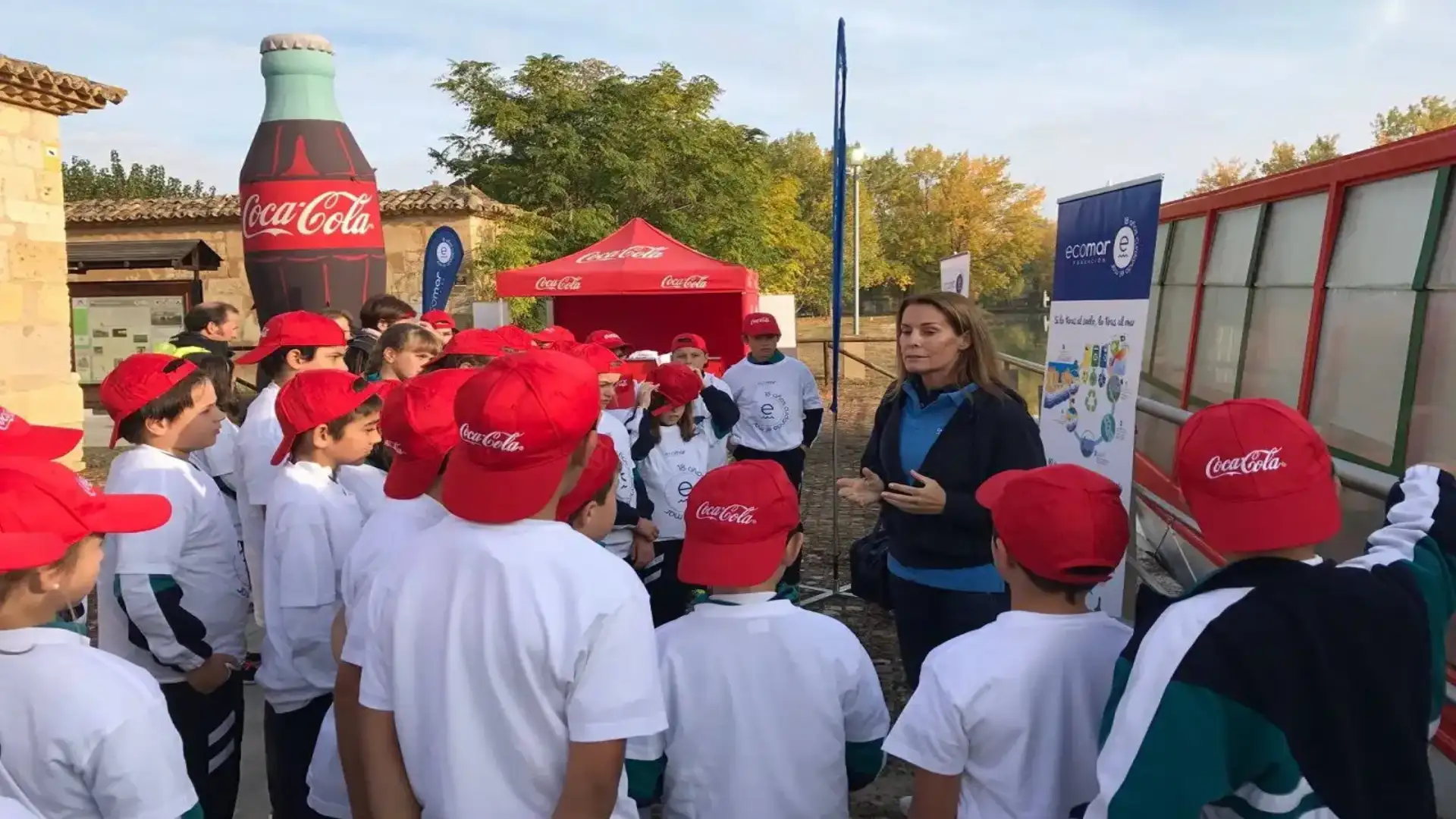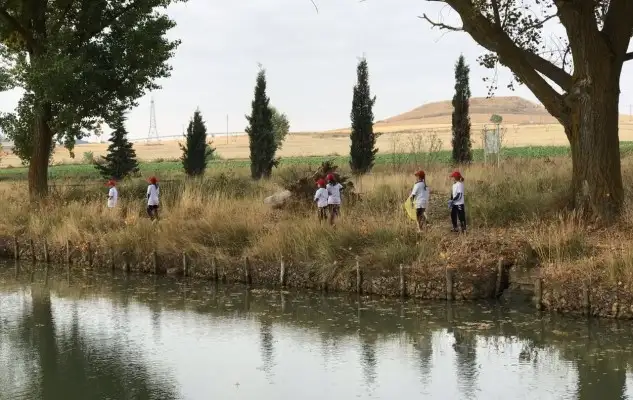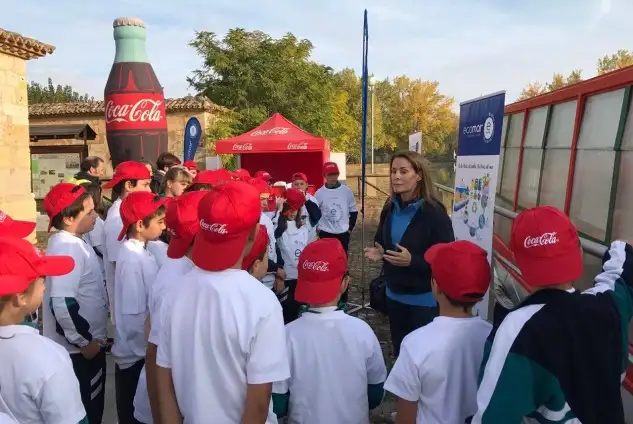
The Ecomar and Coca-Cola Foundation in Medina de Riyeco in the historic Canal de Castilla
The Ecomar and Coca-Cola Foundation in Medina de Riyeco in the historic Canal de Castilla
The Ecomar Foundation, which is chaired by Theresa Zabell, and Coca-Cola, following its environmental policy, moved to the Vallisoletana town of Medina de Riyeco to clean up the Ramal de Campos del Canal de Castilla. This was one of the most relevant civil engineering projects in the Ilustrada Spain, which served as a river route of communication and transport. The channel has a trapezoidal section, with a variable width and depth depending on the sections, between 11 and 22 meters wide and 1.80 to 3 meters deep. The 40 volunteer school students of the San Vicente de Paul school, aged between 10 and 12, managed to collect 147 kilos of waste from the Traveller Reception Centre. It has been two and a half hours in which the children have accompanied Theresa Zabell by unparalleled places listening to the advice of the Olympic bicampeone. Theresa Zabell echoed the need to keep our planet clean in order to enjoy a better quality of life. He recalled the importance of keeping inland waters clean, as 80 per cent of the waste that ends up at sea comes from the land. They accompanied Theresa Zabell, Artemio Domínguez, Mayor of Medina de Ríoseco, María Sanjosé, Lieutenant Mayor of Medina de Rioseco, Francisco Fuentes, Head of Sports Service of the Diputación and Marco Antonio Figueroa, Head of Coca Cola Area.

El Canal de Castilla, is one of the most important civil engineering projects of the Spain Illustrada, the main objective of its construction was to serve as a river route of communication and transport to solve the problem of isolation to which the Spanish and Latvian plateau was subjected, due to a complicated orography and a poor and poorly preserved road network, which made it difficult and almost impossible to transport the agricultural surpluses of the region, mostly cereals. The works of this great project began on July 16, 1753 in Calahorra de Ribas, the municipal term of Ribas de Campos (Palencia), under the direction of Antonio de Ulloa and the chief engineer Carlos Lemaur.
Coastal cleaning is an initiative led and created for more than a decade by the ECOMAR Foundation and driven by Coca- Cola. The project aims to raise awareness among the smaller ones of the importance of avoiding to dirty our seas and coasts, as well as to create a network of volunteers to collect the waste that already exists in them and, in addition, to insist on the importance of recycling waste by depositing it in the appropriate containers. These actions are part of the commitment of Coca- Cola to the environment. A commitment that Coca- Cola develops through its environmental strategy that includes more than 80 actions grouped into four key axes: water, climate, packaging and sustainable agriculture. As on previous occasions, Coca- Cola will reward these actions from the small volunteers of the ECOMAR Foundation and, one more year, will transform the waste collected into kilos of Coca- Cola products that will be destined for the Food Bank.
© 2024 Nautica Digital Europe - www.nauticadigital.eu












